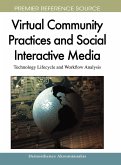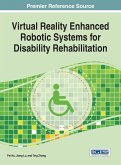The use of virtual training (VT) systems which utilize advanced virtual reality technologies is of growing importance to widespread application domains, such as the aerospace, engineering and medical fields. As with any emerging technology, user acceptance of new software and hardware devices is often difficult to measure and guidelines to introduce and ensure adequate and correct usage of such technologies are lacking. These problems have been tackled by the development of a new evaluation method focused on cognitive, affective and skill-based learning dimensions, and extended to the study of user performance, perceptions and memory in the context of procedural tasks training. The method significantly improves training evaluation time to 9 hours, and the number of users to 6. The method provides a more complete theoretical account of the mechanisms by which VT system design features and individual characteristics affect training outcomes, which should enable future research to systematically evaluate the effectiveness of a wide range of virtual training applications.
Hinweis: Dieser Artikel kann nur an eine deutsche Lieferadresse ausgeliefert werden.
Hinweis: Dieser Artikel kann nur an eine deutsche Lieferadresse ausgeliefert werden.








